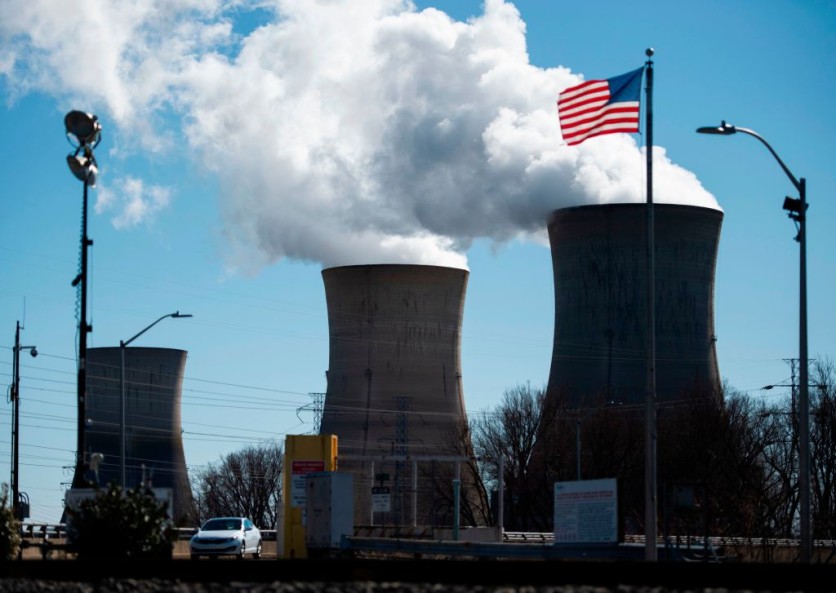To increase nuclear energy use in the US, Congress approved the Accelerating Deployment of Versatile, Advanced Nuclear for Clean Energy (ADVANCE) Act. The bill needs President Joe Biden's signature to become law. The Senate passed the bill on Tuesday after the House passed a similar law in February.
According to The Verge, the Advance Act accelerates next-generation nuclear reactor development and helps elderly reactors operate. Despite its controversy, nuclear energy has earned bipartisan support for decreasing greenhouse gas emissions.

The bill instructs the US Department of Energy to simplify export approval and decrease regulatory costs for advanced nuclear reactor licensees. It encourages the deployment of these technologies and requires the Nuclear Regulatory Commission (NRC) to license small reactors at brownfields and old fossil fuel-generating sites as soon as possible. The bill speeds up licensing reviews for new reactors at existing nuclear plants and simplifies environmental reviews.
Nuclear Power Remains a Key Source of Energy in The US
Evan Chapman, Clean Air Task Force's US federal policy director, said nuclear energy plays a crucial role amid the continued efforts of the US to decarbonize its energy system and "address growing energy demand."
Nuclear energy has health and environmental dangers, according to some groups. In addition to meltdowns like the 2011 Fukushima Daiichi tragedy in Japan, the United States fails to store radioactive waste safely. Moreover, uranium mining and processing for fuel raises environmental concerns.
Nuclear power generated 48% of the US carbon-free electricity in 2023, making it the greatest domestic clean energy source. Steam from boiling water powers a turbine in nuclear power plants, which creates energy without greenhouse gases. Fission splits uranium atoms in a nuclear reactor core to create heat.
According to the US Department of Energy, nuclear energy is one of the most reliable sources of energy in the US. In 2023, nuclear power stations ran at full capacity over 93% of the time, exceeding natural gas (58.8%), coal (42.1%), wind (33.5%), and solar (23.3%) facilities. Because of their inexpensive maintenance and extended operational durations between refuelings, nuclear reactors run 24/7, usually 1.5 to 2 years.
Catching Up with China
The latest development in the US nuclear energy sector comes after a recent study revealed that it is already lagging behind China in infrastructure.
A study conducted by the Information Technology and Innovation Foundation found that the US is 10 to 15 years behind China in constructing next-generation reactors, suggesting that the US industrial strategy has become complacent.
Al Jazeera reported that China unveiled the first fourth-generation nuclear facility at Shidao Bay in Shandong last December. Chinese state media have praised the plant's gas-cooled reactors as safer and more efficient than earlier nuclear technology.
The research revealed that China is developing 27 nuclear reactors, each of which will become operational in seven years, faster than most other countries.
The US generates one-third of worldwide nuclear electricity with its 94 reactors, but it has only constructed two new reactors in the past decade; both were years late and billions over budget.
The Washington-based research group said that China now leads nuclear fusion patent applications and increased its nuclear patent share from 1.3% to 13.4% between 2008 and 2023.
The study pointed out that a "coherent national strategy" of low-interest financing, feed-in tariffs, and expedited regulatory approvals has accelerated China's nuclear energy advancement. It also highlighted that Beijing's "broader energy strategy" made the construction of domestic nuclear reactors a priority.
China could use its domestic nuclear capacity for competitive reactor exports, similar to its 'dual-circulation' plan for electric vehicles and batteries.
Related Article: US Defense Contractor Northrop Grumman Urges Washington for More Investments in Hypersonic Weapons


![Apple Watch Series 10 [GPS 42mm]](https://d.techtimes.com/en/full/453899/apple-watch-series-10-gps-42mm.jpg?w=184&h=103&f=9fb3c2ea2db928c663d1d2eadbcb3e52)


